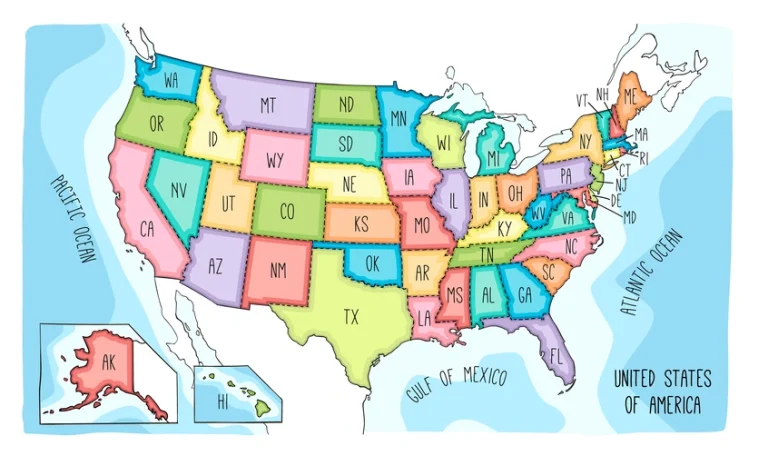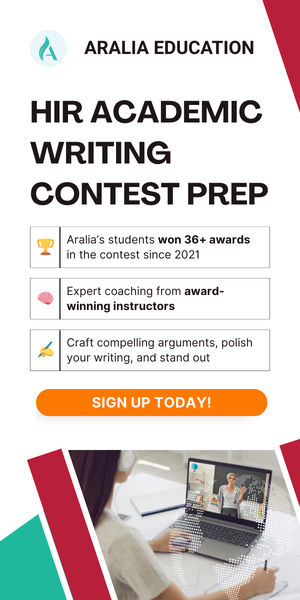1. Why should you start a blog for college admission?
Blogging is an excellent way for students to express themselves through writing. You don’t have to be a great writer to become a successful blogger, only a passion for a particular subject or telling stories. Blogging is a medium for sharing your passion, educating others, or gaining exposure. Whether it’s about your independent study in another country or your time in an internship, you can share your story and maybe educate others through your experience and new knowledge. In addition to sharing your thoughts and expertise, blogging can help with college admissions.
Because blogging is a platform for students to express their thoughts and reflections, adding your blog to your college application can supplement your other materials and give admissions officers another perspective on your character and passions. When evaluating a candidate for college, college admission officers will use everything you submit to analyze if you will fit in with the college culture and learning environment.
The Common Application gives you limited space to list and explain activities; so, if you’re a high achiever, how can you describe your activities in so few lines? By adding your blog to the supplementary area, you can showcase your past work, highlight your extracurricular activities and achievements, and discuss any other relevant experience to demonstrate that you are a well-rounded and outstanding student. So, what should you do to get started?
2. Choose a topic that you’re interested in exploring
One of the most challenging steps in starting a blog is deciding on a topic you want to write about. Depending on the intended purpose of your blog, you should tailor your topic accordingly. Some popular topics that students choose are:
- Blog as a Work Showcase: The primary purpose of this blog is to showcase your work and achievements. Online portfolios are popular among students with portfolio pieces in writing and art (graphic design, illustration, etc.), but it’s not limited to just these two fields. For example, you could also use it to document labs or research in scientific fields.
- Blog as a Growth Log: This type of blog can help bring breadth and depth to the rest of your application, as posts will discuss your learning or development over a period of time. In this blog, students should focus on unpolished versions or works-in-progress, as well as their personal reflections on their growth to showcase their critical thinking and self-assessment process. This kind of blog will serve as an excellent record, because others can read through your experiences and understand your process. However, please keep in mind that you should be sparing in the works that you choose to publish, as the focus should be primarily on your analysis rather than a collection of images.
- Blog as a Business Space: Students with an entrepreneurial mindset can take advantage of a blog to start promoting their businesses. This online space can serve as a landing page for the product or service, and also provide relevant updates. In addition to a formal business site, students can also consider having a personal blog page where they share behind the scenes processes, or discuss the intricacies of their industry to provide insight and exemplify their experience.
- Blog as an Opinion: This kind of blog is like a personal journal made public. You can use this kind of blog to express your thoughts on current events, or to share your interests. With little in terms of limitations in this type of blog, you can be creative and highlight your unique points of view or experiences.
- Blog as a Hybrid: If more than one of these blog types appeals to you, you can consider combining them to make a hybrid blog. For example, if you want to showcase your art, but also present your progress, your blog would be a hybrid of a Work Showcase blog and a Growth Log blog. We recommend starting with one and then expanding to another type throughout time to ensure that you’re not stretching yourself too thin or losing focus.
3. Choose the platform for blogging
We have introduced four types of blogs, and now you must have wondered, “Which platform should I write my blog on?” We have just the correct answer for you!
There are various blogging platforms or general website-building tools to get you started on your blogging journey. Before choosing one, ask yourself how much time you plan to dedicate to building your website, and how much experience you have had with website building; these answers will help you decide which platform fits you the best.
Blogger and WordPress are good starting points for a blogging platform, as they require little to no prior knowledge of website development. Still, people with extensive web development experience still like these platforms because it is easy to customize the site to their liking. They will host your blog for free, and you can choose from a variety of free templates. However, they also provide a paid plan for people who desire more advanced tools.
Wix, Webflow, and Squarespace have a medium to hard level of difficulty as website-building tools. These platforms are particularly good for Work Showcase or Business blogs because their tools are specifically designed to customize the visual interface of your website to make it easy to navigate or display portfolio pieces.
- Medium.com: Medium is an online publishing platform where writers can share their writing on any topic. The community on Medium is relatively small, but of high quality, meaning that people are willing to spend time reading your work and providing quality feedback. Topics range from arts & entertainment, culture, equality, health, industry, personal development, and politics to programming, science, and technology. Moreover, Medium also provides you with Audience Insights that give you useful information to help you increase your readership, or write pieces that will draw your audience’s attention.<
- Tumblr: Tumblr is a personal blogging and sharing platform where fiction thrives, and can often go viral. People consider Tumblr to be a hidden gem or a hub of culture. If you write fiction, you can take advantage of this platform to share your work. Then, remember to link your website so people can learn more about you!
- WritersCafe
4. Keep your blog posts consistent
After creating a blog, it is essential to consistently update it with new content, business updates, or work. With so many resources, you can create a blog with an over-the-top design, interactive elements, and a beautiful navigation bar. However, none of this effort will matter if they are inconsistent or sparse with their posts. Admissions officers only want to engage with supplementary content in your application that gives them a unique view into your life and personal growth, which they won’t find if you rarely post.
We understand that sometimes, it’s challenging to come up with new content or work, but try to update your blog at least once a month so your website stays current and relevant for your readers. More frequent posting also attracts more subscribers, especially if your blog content is exciting or informative.
You could try using social media to promote your blog so that it attracts a larger audience who may want to see more content on topics such as student life, higher education, campus or dorm life, school tips, etc.
In addition, you can follow some blogs for college students and get inspired by those. Usually, those blogs cover topics include campus life, college experience, college years, student loan, navigating college, college cures, college life made easy, college info geek, college entrepreneur 101, and see if you could use those ideas into your own blog.
Creating a blog to supplement your college admissions applications is an effective strategy to expand on your interests and give a unique perspective on your capabilities to admissions officers. When done well, it can showcase the breadth of your knowledge and passion, help you stand out from the crowd, and increase your chances of success. With some dedication and creativity, anyone can create a great blog that will truly impress college admissions boards!
This class is offered in the summer every year. Students from 13 to 18 years old wanting to learn how to shape their written English into effective and publishable creative pieces will find this particular Writing Competition course very exciting. The class will be shown a range of tools to learn the nuances of controlled, purposeful writing, including: figurative language, effective structuring and specific forms that they will apply to their own pieces.










